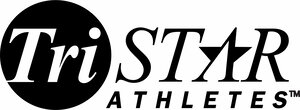Ever wonder how hard you should go? At Tristar athletes we have different racing outputs for our athletes based on their race potential and ability. See how you should pace your next race.
Athlete Resources, Pacing, zones

The best kept secret in coaching
Athlete Resources, Pacing, zones
For those Tristar Athletes familiar with bike power zones we have presented the main similarities and differences below to running with power and biking with power.
Both use FTP (functional threshold power)
Both have their own unique % of FTP that the zones are made up of.
Both have an absolute advantage for training, a watt is a watt. A measurable output.
Both are helpful for targeting races and for yearly planning.
Both can be used to pace more accurately than heart rate, pace or perceived effort alone.
Both need to be calibrated regularly and the FTP (hour of power or threshold) updated regularly to ensure accuracy.

Run and Bike power zones side by side
Comparison to rate of perceived effort.
Run power is a more complex measurement as it has two power outputs measure; form power and horizontal or “power that moves you forwards.”
This extra power data can help with form and speed. (Form is crucial to run economy and speed.)
Lower power zones for running tend to be higher as a % of FTP compared to cycling. For example 85% for run power is middle of zone two where as for cycling this is the middle of zone 3.
More power does NOT mean you will necessarily run faster….more power in cycling generally does. Running with greater form (or lowering form power) and increasing stiffness equates to running faster.
Due to the above; We must be observant of both horizontal and form power at all times. As an athlete you should not blindly train by power or zones but rather zones + form efficiency.
The goal should be to maximize your speed/watt.
New to power? Start by focusing on being efficient at slower powers and paces before moving on to harder efforts and work.
With run power you should chart/track your baseline efficiency numbers for each race pace effort you are trying to accomplish. Example; perhaps you have a form limiter when you are running slower? (know your EI, or efficiency index) If you are training for a slower marathon or Ironman marathon for example and your form power is high at slower efforts vs faster there is run form work to be done there. That form work should come before training at a specific wattage or power zone.
zones, Training Peaks, Coach Cliff Scherb
TSS, Training Stress Score, zones